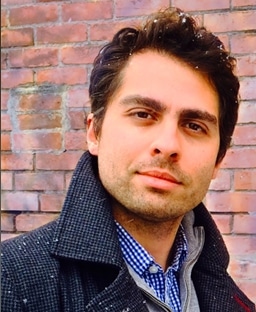Mar 10 2016
Mohammad Hamidian, Ph.D. ’11, has been named the 2016 winner of the prestigious Lee-Osheroff-Richardson Prize for his discoveries of new forms of electronic matter at the nanoscale and at extreme low temperatures.
 Mohammad Hamidian
Mohammad Hamidian
In particular he is cited for advances in the technology of scanning tunneling microscopy (STM) to allow operation at ultra-low temperatures – work done in the lab of J.C. Séamus Davis, the James Gilbert White Distinguished Professor in the Physical Sciences. Hamidian was a doctoral student, and later a post-doctoral researcher, in the Davis lab. He is now a research associate in the J.E. Hoffman lab at at Harvard University.
At Cornell, Hamidian invented techniques that, for the first time, enable an STM to observe the quantum states of electrons in samples refrigerated to milliKelvin temperatures (a few thousandths of a degree above absolute zero). This allowed him to search for states of electronic quantum matter that only occur at those extremes. His most recent publication with Davis reported the discovery of a so-called Cooper-Pair Density Wave in a superconductor, an elusive electronic state that researchers have been searching for since 1964 but were never previously able to observe.
The prize, sponsored by Oxford Instruments, a manufacturer of devices to observe and manipulate matter at milliKelvin temperatures, is named in honor of Cornell researchers David Lee, Douglas Osheroff and the late Robert C. Richardson, joint recipients of the 1996 Nobel Prize in Physics for their discovery of superfluidity in helium-3. The winner receives a cash prize of $8,000 and support to attend the 2016 American Physical Society Meeting in March, where the prize will be awarded.